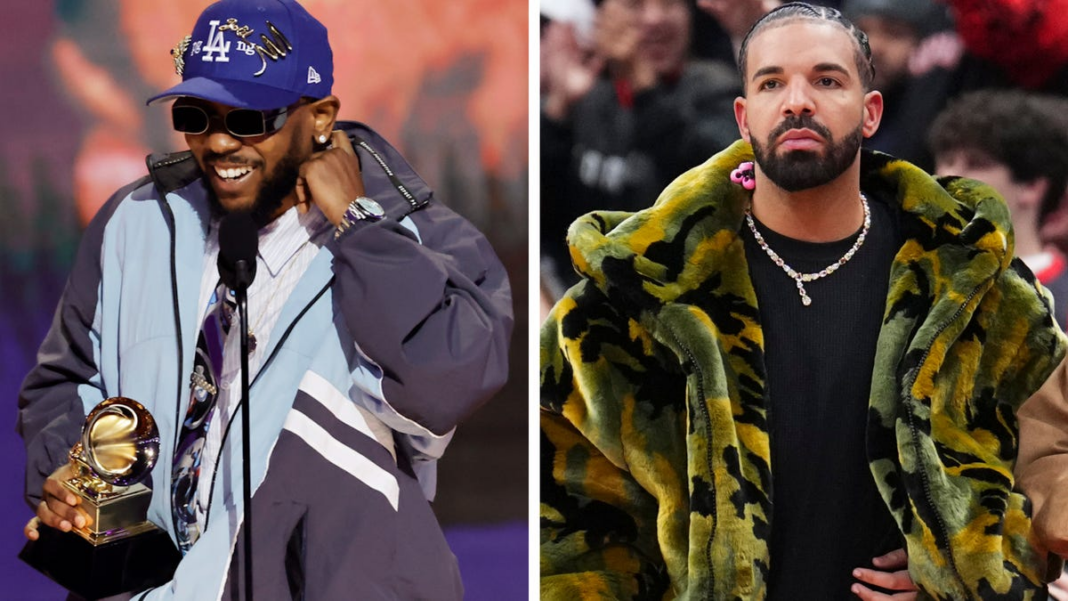Spotify responds to Drake’s accusations regarding Kendrick Lamar’s ‘Not Like Us’ streaming scheme
Spotify has issued a response following Drake’s legal allegations that claimed the music streaming service collaborated with Universal Music Group to “artificially inflate” the streaming success of Kendrick Lamar’s track “Not Like Us.”
The document submitted by Spotify in New York County Supreme Court on Friday, which was acquired by YSL News, states, “This issue stems from a longstanding conflict between the well-known musicians Aubrey Drake Graham (known as ‘Drake’) and Kendrick Lamar Duckworth.”
Spotify’s attorney described the platform as “an outsider to this dispute,” noting that only a handful of claims from Drake’s filing on November 25, including one that suggests Spotify agreed to promote “Not Like Us” for a reduced royalty rate, were directly aimed at the streaming service.
The company refutes making such an agreement and requests the court deny Drake’s motion for pre-action discovery, which seeks evidence related to his claims, before he lodges a formal lawsuit. Spotify argues that Drake’s claims are “strictly based on conjecture … or statements from unnamed sources online.”
Due to these factors, Spotify argues that it should be excluded from the case and relieved of the need for pre-action discovery.
In reply to Spotify’s filing, Drake’s legal representatives from Willkie Farr & Gallagher LLP stated, “It’s expected that Spotify would attempt to distance itself from UMG’s purported manipulative actions aimed at boosting streaming numbers for one of their artists.”
“If Spotify and UMG are transparent and have nothing to conceal, they should not hesitate to comply with this legitimate discovery request,” the statement added.
Earlier, UMG had rejected Drake’s allegations.
In a statement to YSL News on November 25, UMG asserted, “The idea that UMG would undermine any of its artists is both offensive and false. We uphold the highest ethical standards in our marketing and promotional efforts. No amount of fabricated and ridiculous legal claims in this preliminary submission can alter the fact that listeners choose the music they wish to enjoy.”
What did Drake allege in his lawsuits?
In two separate petitions filed in New York and Texas last month, Drake accused UMG – which manages music distribution for both himself and Lamar – of orchestrating a plan to elevate Lamar’s diss track, which he claims negatively impacted Drake and his enterprises. The New York filing targeted UMG and Spotify, while the Texas suit was directed at UMG and iHeartRadio.
Drake’s New York lawsuit contended, “UMG offered Spotify licensing fees at a 30% discount for ‘Not Like Us’ in exchange for Spotify actively promoting the song to users searching for different unrelated artists and tracks.”
“The streaming and licensing industry is a zero-sum game. Every time one song gains popularity, another artist’s music suffers as a result,” the lawsuit stated. “UMG’s decision to flood the market with ‘Not Like Us’ comes at the expense of its other artists, including Drake.”
Spotify’s attorney countered this claim in Friday’s filing, asserting, “The Petition fails to present any evidence showing that Drake’s music declined in popularity, let alone specify any degree of such decline. In fact, Drake was the second most streamed artist on Spotify in the U.S. in 2024, just behind Taylor Swift.”
However, “Not Like Us” was declared the second most streamed song in the U.S., following “Espresso” by Sabrina Carpenter, according to Spotify’s report earlier this month. Lamar held the position of the seventh most streamed artist in the nation.
Spotify’s response to the accusation of bot-driven inflation of ‘Not Like Us’ streaming figures
David Kaefer, Spotify’s vice president and head of music and audiobooks, submitted a statement asserting that the platform has “no proof to validate” one of the accusations in Drake’s lawsuit regarding the use of bots to boost “Not Like Us” streaming numbers.
Kaefer expressed, “Spotify allocates significant resources toward both automated and manual processes to detect, prevent, and combat artificial streaming on our platform.”
“When we spot attempted stream manipulation, we respond with actions that may include the removal of streams, withholding royalty payments, and imposing fines. Confirmed or suspect artificial streams are also excluded from our chart rankings. This is part of our commitment to ensuring fair royalty distribution to honest, dedicated artists.”

